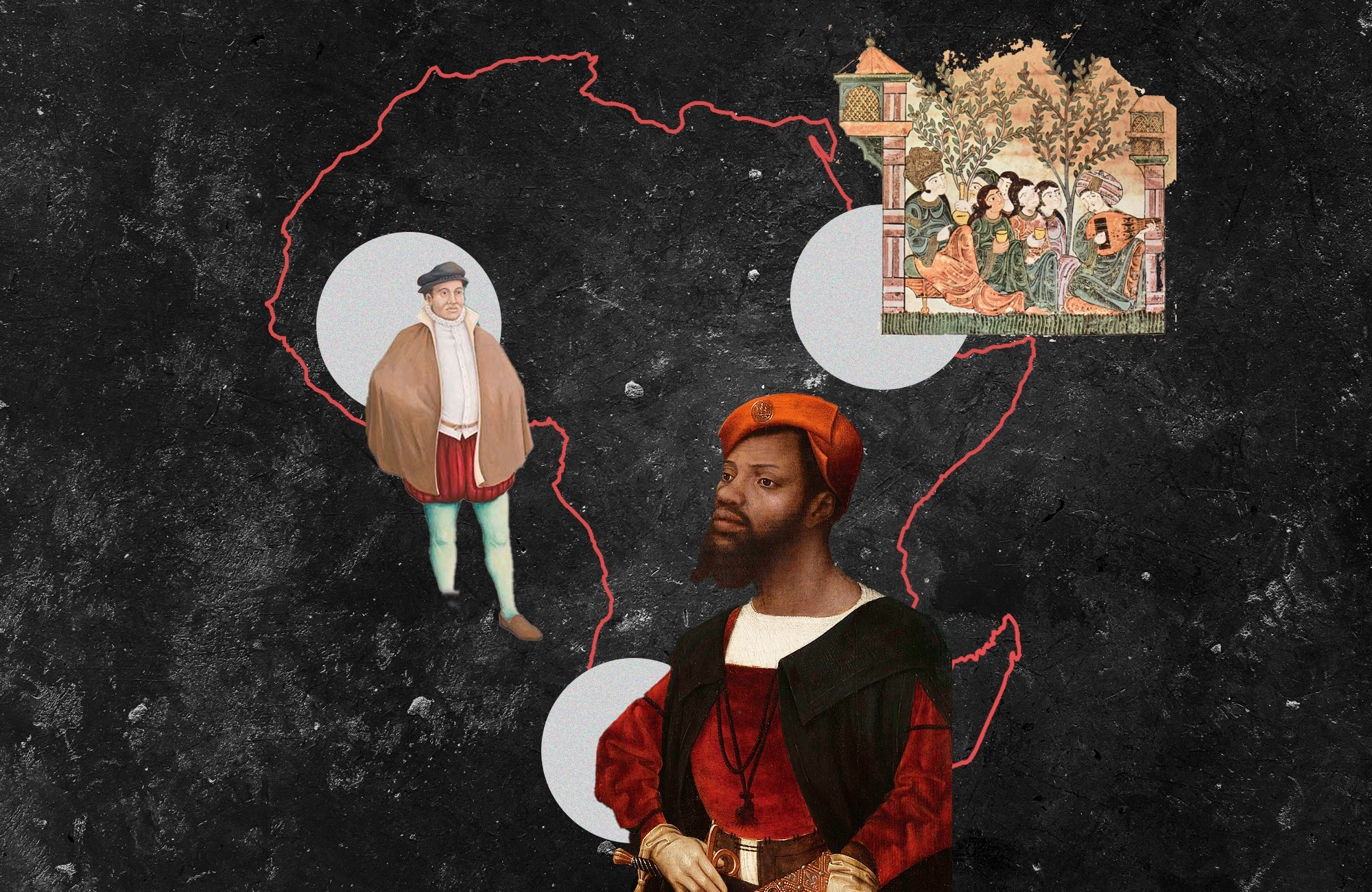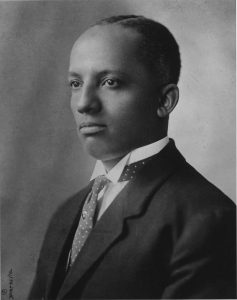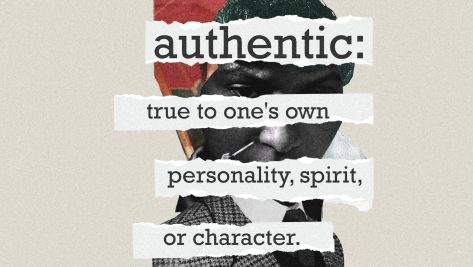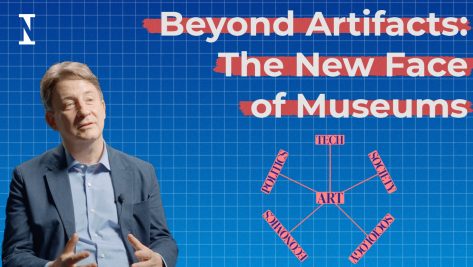Several of us interested in the empowerment of African Diasporas around the world have seen Morgan Freeman’s interview on the CBS show “60 Minutes” hosted by Mike Wallace in which he expresses himself against Black History Month with arguments like “You want to relegate my history to one month?” or “Which month is White history month?” and also “Black history is American history” or “I’m going to stop calling you a White man and I’m going to ask you to stop calling me a Black man. I know you as Mike Wallace, you know me as Morgan Freeman…”. That was in 2005, but the video has been gaining views ever since. It would be all too easy to downgrade that perspective and fade it under the anti-Woke discourses of the far right, but even while I might try to forget those arguments they still resonate in my head, because they present an undeniable internal logic.
One might ask, what is Black History Month for? Does it really provide a service to society other than bringing to educational and social institutions activities labeled as, at best, unusual and, at worst, “exotic”? One might be prone to consider Morgan Freeman’s arguments as those of a radical egalitarian or of someone projecting a post-racial society, were it not for the fact that racism exists and is bigger than any individual.
The position of understanding equality as something that can be achieved simply by believing in it is, on the one hand, naïve, but on the other, it can serve, perhaps unwittingly, to keep things as they are – and things are not good. This is the position of those who claim that equality is already in the constitutions of most countries in the world, so there is no need for more laws or specific policies because the equity of social competition is already guaranteed. But we know very well that social competition is not fair just because laws and judicial principles say they are, and even less so when it comes to passive laws, as in legislations that only address the problems when the consequences must be faced, legislations that do not prevent discriminations from occurring. Too much perfectionism, too much maximalism brings passivity because perfection does not exist, it is a horizon, a goal that is never reached but that allows us to move in some direction.
The most widespread version of the story is that Black History Month originated in the United States at Kent State University in 1970 as an extension of Black History Week created in 1926 by Carter G. Woodson, a prominent African American historian. It was established in the month of February as a celebration of the lives and achievements of abolitionist Frederick Douglass, born February 14, 1817, or perhaps 1818, and the president who issued the emancipation proclamation, Abraham Lincoln, born February 12, 1809. Its purpose was to empower children and young people through knowledge of the past and achievements of black people in American history, a history that was not taught except in some black colleges and high schools. Today, Black History Month is also celebrated in institutions in Canada, Great Britain, and Ireland (in October a significant month for Caribbean emancipation from colonial rule) and it is beginning to be introduced in a range of other countries, including Spain.
Dr. Carter G. Woodson (1875-1950)
Some may argue that from that first Black History Month in 1970 to the murders of George Floyd and Breonna Taylor in 2020, we have seen little progress in the fight against racism in the United States and we do not know to what extent Black History Month has contributed to improving existing conditions of oppression. Probably, the fact is that without this celebration and many other commemorative events, international and global dates that remind us of concrete human rights or invisible realities, conditions would have been even worse.
That said, we must understand that the Afro communities in each country have their own history and particularities and are not necessarily a copy of the histories of the diasporic communities in the United States. For example, at a percentage level, the Afro community in Spain is approximately one-third born in Africa, another third born in Abya Yala, the continents known Eurocentrically as “the Americas”, and another third born in Spain, in addition to individuals from Europe and Asia. This configures a set of communities, close to two million, of which approximately half have Spanish nationality and have more varied life histories, aspirations, and objectives than those of the Afro-American communities, at least this has been the case until the current century, since the factuality of the origins of the African populations is changing in the U.S. as well.
In Spain, activists and social organizations have sent proposals to the government to officially institute an Afro history month to be included in the much-needed General Law against Racism, yet to be passed. Here, among activists, the term “afro” is more commonly used than the term “negro” which is also used (meaning Black and not to be confused with the word negro in English). Contrary to some popular beliefs, afro does not refer only to a specific type of hairstyle, but to any element that has African origins, such as afro pop, so afro hair gets its name from its African origins. In any case, to avoid confusion, I prefer to designate Afro communities with an initial capital letter, a way of positioning myself challenging the initial capital letter of the word State, which so often makes other collective identities invisible. For my part, I prefer the denomination Afro for our community, instead of Black, because I consider it more inclusive for the variety that exists in it. It is a denomination that allows us, when referring to our diversity, to avoid using acronyms such as BIPOC (Black, Indigenous, and people of color) or euphemisms such as “Colored” or compound denominations such as “Black and Brown” which, rather than empowering depending on how they are read, seem to promote internal divisions based on colorism in the Afro communities of the countries where they are applied.
I came to Spain from Colombia when I was two years old, in the early 70s, hand in hand with my mother, one of the first international Black fashion models, I am now 54 years old. In all my years of schooling, college, high school, and university in Spain I only heard once a brief mention of the life of Martin Luther King and on another occasion, I saw a film about the resistance of the Zulu kingdom against the British imperialist invasion. Nothing else about Africa, apart from some geography and biology. Nothing about History, Literature, Science…. I never had a single non-white teacher, never had the privilege of listening to an Afro teacher. That was all until I started my PhD in African Studies and International Relations, there, among others, I was taught by the recently deceased and much mourned Professor Mbuyi Kabunda Badi, a great expert in African politics.
Fortunately, I grew up in a family that led me to cultivate myself by reading all the books on Africa that came into my hands, at least since I was 12 years old, and there have been hundreds. But I can imagine the impression of desolation and disempowerment left in the minds of Afro children and young people by the non-existence of any Black reference anywhere other than those that can generally be seen on television, be they sportsmen and sportswomen (by the way, I love sports), actors and actresses or musicians (I also love music) not to mention the sad or cruel images that we have all received about Africa and its supposedly eternal and inevitable conflicts, as well as the countless migratory tragedies in the Atlantic Ocean en route to the Canary Islands and in the Mediterranean close to Ceuta and Melilla. Nothing encouraging, nothing inspiring, especially for young minds that need references like them to make them feel that they can be whatever they want to be. Nothing encouraging, nothing inspiring also for non-Afro students embedded in a system that promotes the idea that Europe and its populations around the globe are “superior” to the rest.
The way history is taught can play an important role in the fight against racism.
This past month of February 2023 has probably been the most energetic in my entire professional life, having participated in a series of events at institutions such as IE University hosting a talk on the African presence in Spain, the National Museum of Anthropology with a round table on Spain’s involvement in Atlantic Slavery, the Complutense University of Madrid where the Association of African and Afro descendant Students Kwanzaa organized a series of talks, and the presentation at New York University in Madrid of the book An Ugly Word by Ann Morning and Marcello Maneri, a comparative study of racism in Europe and the U.S. At the conference at the Complutense University, I had the opportunity to speak on social stratification in the Malian Empire and other African societies, a topic I had never before had the opportunity to discuss in any Spanish institution. It was Black History Month that made it possible.
So, although I too have been tempted to think too idealistically, something that has led me in the past to make comments against reducing our history to one month, the fact is that the formula of one month devoted to Afro history works and is very necessary, for example in countries like Spain. Of course, the history of the Afro presence in Spain is embedded in the country’s history and I have considered it so in every teaching I have given, but it seems that we will not be able to disseminate it as massively and effectively as we would like if there were no month of Afro history in Spain. And this is even more important at a time when we have witnessed a growth of racism in various areas as shown in the 2020 report of the Council for the Elimination of Racial or Ethnic Discrimination, the main official body in Spain in the fight against racism, which I am honored to chair. Undoubtedly, the way history is taught can play an important role in the fight against racism.
Black History Month may not be the perfect way to address the vast history of Africa and its diasporas, a history that has shaped the world not only by its great achievements on the African continent, but by the fact that the very foundations of the European civilization are to be found in Kemet, Egypt, citing all the ancient Greek historians who addressed this issue, starting with my favorite, Herodotus of Halicarnassus, something that has been recalled by Cheikh Anta Diop, George G. M. James and Martin Bernal, among many others. Black history month may not be the best solution, but it is much better than no Black or Afro history. Sometimes we need a reality check. Unless there is a specific date to address certain issues, the Eurocentric and other-centric society we live in will never or barely address those issues. And of course, this does not mean that “our” history, which is an enormous part of the history of humanity, is to be reduced to one month.
I am scheduled to teach at the University of Granada the first course in a Spanish university and in the world on the Afro presence in Spain from prehistory to contemporary times. Thanks to the Granafrik entity and the Mediterranean Center of the University of Granada, students will have the opportunity to learn about the African saints San Fermin of Amiens, co-patron saint of Navarre, or San Isidro, patron saint of Madrid, Abu l-Hasan Ali ibn Nafi`, living in the Al-Andalus of the ninth century, the man who probably created the current National Anthem of Spain as well as the instrument that anticipates the Spanish Guitar, the mathematician and poet Ibn al Yasamin, the woman archer, general of an army of African archers Nugeymath Turkia who besieged Valencia then defended by El Cid in 1097, Céspedes the first woman surgeon, in the sixteenth century, Juan Latino, Chair of Latin Grammar at the University of Granada for 30 years in the 16th century, Tshikaba, the first Black woman to publish a book in Europe in 1752, who lived in Salamanca, and many other relevant Black characters of the history of Spain that have been invisibilized, dismissed, or forgotten.
So it seems that, contrary to some opinions, Afro History Month will not be reduced to one month. In fact, Afro History Month, which has not been yet officially instituted in Spain but has been promoted by universities and various social institutions in the last two years, is giving impetus to other initiatives during the rest of the year.
Black History Month and Afro History Month, are initiatives that fight for a world without ethnocentrism and racism, expressly Eurocentrism and white supremacism, a world in which no more months of African history are necessary because African history is recognized in its decisive and universal dimension, in its inescapable importance to understand the past, the present and promote a better future. Until then we will continue to celebrate this month and any other devoted to any suppressed, subjugated, or invisibilized community.
© IE Insights.












